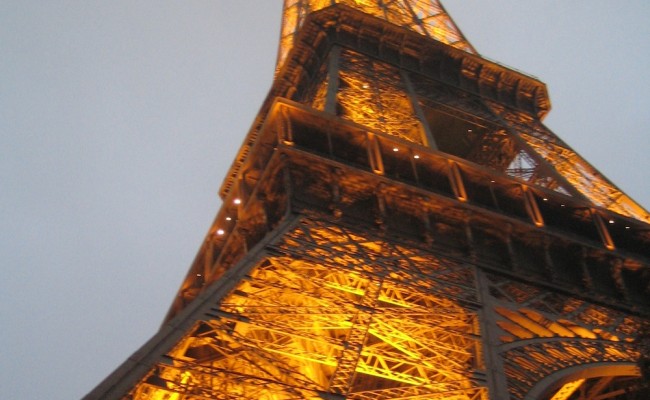My partner and I went to see Woody Allen’s Deconstructing Harry when it was released back in the 1990s. Though not one of his critically acclaimed movies, the film had moments I loved.
Successful writer Harry – this was back in the days when Allen played most of his own leads – is invited to his former university to be honoured. Harry cannot function in life, only in his art. He is like one of his characters, an actor who suddenly becomes ‘out of focus’; his family is afflicted by headaches just by looking at him. By the end of the film, Harry arrives at his former university with his kidnapped son, a prostitute and the corpse of one of his friends.
I watched this all happily, at times breaking into laughter.
Beside me, my partner fell asleep.
A staunch feminist, she objected not only to Harry’s dalliance with a prostitute but to Allen’s entire world view which was, she observed, irreducibly male. All women are seen through the objectifying eyes of the unlikable Harry. None of them are fully realised characters; they are ciphers on which Harry projects his own sexist and neurotic hang-ups.
This ‘male gaze’ has been a characteristic of Allen’s films, with the exception of some of the films he made in the decade that began with Annie Hall in 1977.
Interestingly, Allen has always been an American liberal, a fact sometimes overlooked. As he joked in Annie Hall, ‘I’m a bigot, I know, but for the Left.’ In Deconstructing Harry, he satirises Harry’s orthodox Jewish sister and her husband who is a right-wing hawk.
These two sides of Allen’s outlook – the ‘male’ and the liberal/political – are present in his new movie, Midnight in Paris. For Gil, a screenwriter, the Paris of the 1920s is a golden age. By contrast, the modern world is a vast disappointment.
Gil’s fiancée, Inez, does not agree. She loves the life made possible by his screenwriting work and is less than impressed by Gil’s longing to move to Paris and write novels. Meanwhile, Inez’s father is a cardboard cutout Tea Party Republican who sees Gil as a communist (at one point, as Gil leaves the room, he says, ‘Say hello to Trotsky!’).
When Gil mysteriously slips back in time to the 1920s, he is escaping not just the modern world, but the right-wing materialism that has become so dominant. In these sections, Allen’s ode to 1920s Paris, the film comes alive. Scott and Zelda Fitzgerald, Ernest Hemingway, Gertrude Stein, Pablo Picasso, Salvador Dali, Luis Buñuel – all these wonderful characters make an appearance, allowing Allen to play delightfully with their mythologies.
Gil meets a young woman, again not a fully realised character, but a cipher onto which he can project his dreams. She is another example of a recurring figure in Allen’s movies: the young muse to the artist. Neither she, nor the shrew Inez, has the verisimilitude of a character like Annie Hall. Still, in contrast to Deconstructing Harry, Gil is a much more sympathetic character; he lacks the self-centred sexism of Harry. Allen’s decision to cast Owen Wilson as Gil also relieves the film of Allen’s tiresome repetitive figures of the much older man and the younger muse. All in all, Midnight in Paris’s ‘male gaze’ is sufficiently ameliorated for the film’s romanticism to take centre stage.
Midnight in Paris is an overwhelmingly nostalgic film (reminiscent of Allen’s earlier Radio Days), even as it tries to critique Gil’s romanticisation of the past. Though its narrative disclaims nostalgia for a long-gone ‘golden era’, it cannot help producing precisely that in its lovely depiction of Paris in the 1920s: a world of high-modernism and the avant-garde, of exciting artistic innovation, of parties and dancing, of late-night café discussions.
Yet Midnight in Paris fails to show how this world was built on the great social upheavals surrounding it: the two world wars that book-ended the era, the technological revolution that included the widespread growth of the automobile and electricity, the resistance by remnants of the aristocratic order, the threat of proletarian revolution. Instead, Allen offers us Paris without history or politics, the very things that enabled the romantic life he depicts. We are left with an enchanting image of the 1920s, a charming facsimile that owes more to myth than reality.
As the film progresses, Gil learns that his romanticisation of the past is a function of his inability to live in the present. Once again, Allen dissolves history and society into the personal.
Still, Midnight in Paris is Allen’s best film in years. If, like the rest of his work, it cleaves to the personal and if, once again, his female characters lack the depth of an Annie Hall, Allen offers his vision with rarely equalled humour or charm. Compared with some of his earlier films, his sexism remains in check, allowing us revel in the romance of his 1920s Paris.



